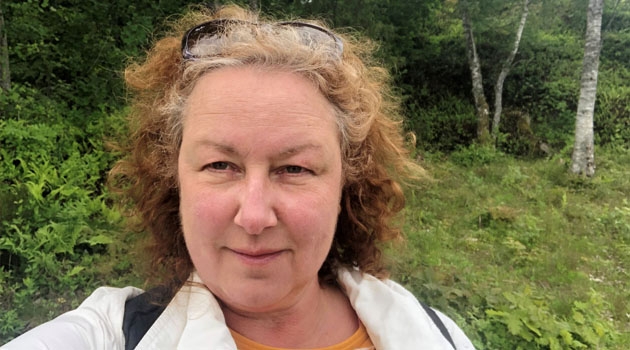"It is now that we are seeing the benefits of biotechnology"
Hello Margareta Krabbe, organiser of a panel discussion during Almedalen Week together with the Testa Center with the theme ‘Mobilising for excellence in future production of biologics and advanced therapies’. What are you going to be discussing during the seminar?
“We will discuss what this kind of centre may mean for the development of the industry, as we shift from small-molecule chemistry to using more biologics. There is talk of an industrial transformation, as the medicines we are currently developing are much more specific to various types of diseases and conditions we want to treat. We will see where our moderator Björn Arvidsson from STUNS leads the discussion, but it will be exciting to hear the different participants’ perspectives about what Sweden, Testa Center and Uppsala University can contribute.”
How are Uppsala University and Testa Center performing in this area?
“We have the perfect conditions thanks to an agreement with Testa Center that runs for five years. We have the opportunity to have both courses and research down at Testa Center, and in the autumn a new programme focusing on biologics will be launched at the Faculty of Pharmacy.”
In concrete terms, what could we expect to be achieved by a collaboration between UU and Testa Center?
“We have researchers working on antibodies against different types of diseases, several of which have made quite significant progress. On the training side, I can see that we are able to train talented employees who can drive these developments forward, both in the world of research and in industry.”
What do you hope to get out of participating in Almedalen Week?
“This is a chance to show that Uppsala University is part of a development that is truly affecting people out in society. These efforts could help ensure that these medicines are released faster and will be cheaper, more widely available and will have fewer side effects. At the moment these medicines are extremely expensive to produce, so we hope to create better manufacturing methods so that we can make them accessible.
How has the pandemic affected interest in this type of research?
“People are aware that things are happening in this area, and that was one benefit of the pandemic. Before, we were not able to talk at length about mRNA and vaccines, but now we know more. Many people are of course wondering what will happen when new pandemics occur. Are we prepared for them? And how will we manage the next pandemic? We believe there is a view across society that we should be more independent and manage the production of vaccines, for example. For someone like me who has worked on biotechnology for a long time, it feels like it is now that things are happening. It is now that we are seeing the benefits of biotechnology. The pandemic has shown that we need to be able to produce things in Sweden and that we need to understand the mechanisms behind vaccinations and mRNA.”
Sandra Gunnarsson
Mobilising for excellence in future production of biologics and advanced therapies
Testa Center is a test bed at which both academic researchers and companies can develop production processes for biologics. Uppsala University also manages training courses in biotechnical production at the facility. During the seminar arranged by Uppsala University and Testa Center, participants will discuss areas such as how training in biotechnical production can lead to an improved skills supply nationally in the field of pharmaceutical production.
Among those on the panel will be Jesper Hedberg, CEO of Testa Center, Jenni Nordborg, National Life Science Coordinator, Darja Isaksson, Director General of Vinnova, Anders Hagfeldt, Vice-Chancellor of Uppsala universitet, Marika Nestor, Associate Professor in Immunology, Genetics and Pathology at Uppsala University. Moderator: Björn Arvidsson, Managing Director at STUNS.
Time: Tuesday 5 July, 15:00-16:00
Venue: D Building, Uppsala University, Kaserngatan 1, "Torget"

